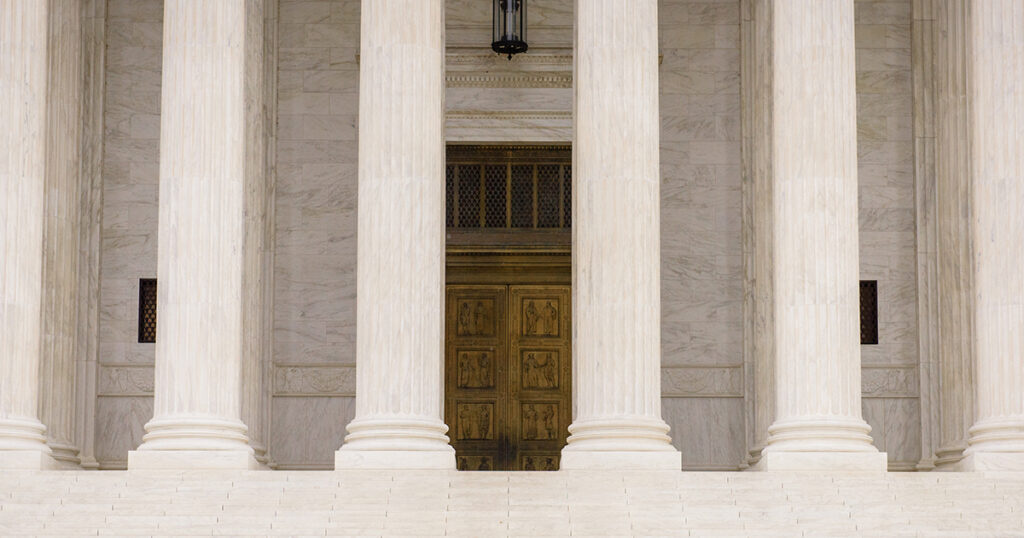Title VII of the Civil Rights Act of 1964 forbids employment discrimination on the basis of “race, color, religion, sex or national origin.” Including “sex” was meant to ensure that women had the same rights as men in the workplace.
But the meaning of the word “sex” is no longer straightforward. The Supreme Court has ruled that “sex” must be construed so as to include sexual desires and gender self-identity. Homosexuality and transgenderism are now legally protected civil rights.
The case Bostock v. Clayton County consolidated three cases, two of which involved gay men who were fired from their jobs because of their sexual orientation, with the other a male funeral home employee who was fired for transitioning to be a woman.
The court voted 6-3 to add sexual orientation, gender identity and transsexual status to the civil rights law, with only Justices Thomas, Kavanaugh and Alito dissenting. (Read Alito’s dissenting opinion.) Justice Neil Gorsuch wrote the majority opinion, which will guide the implementation of the ruling.
Two of the supposedly conservative majority on the court (Gorsuch and Roberts) joined the four liberal judges in the decision. This was unsettling to Americans who had hoped the new composition of the court would be a brake on “culture war” cases.
Does the newly-defined civil rights law mean that churches can be prosecuted if they let go a parochial schoolteacher for coming out as homosexual or a pastor who decides to become a woman?
Not necessarily, at least not yet. Justice Gorsuch’s opinion left room for a religious exemption. He said that the Religious Freedom Restoration Act was still in force. And yet that law, passed overwhelmingly by a bipartisan vote in 1993, is itself a target in the culture wars.
The Equality Act, which would explicitly outlaw discrimination on the grounds of sexual orientation and gender, includes a provision that would exclude religious exemptions, specifically stating that the Religious Freedom Restoration Act would not apply. The Equality Act has already been passed by the House of Representatives and is before the Senate, where the Republican majority will prevent it from becoming law. But that could change.
In the meantime, the court defers to the right of churches to choose their own ministers and teachers. That was the unanimous decision in a case brought by an LCMS congregation in 2012, Hosanna-Tabor Evangelical Lutheran Church v. EEOC, in which a dismissed teacher invoked the Americans with Disability Act in her claim that she was discriminated against.
So, the newly-defined Civil Rights Act of 1964 probably will not impact churches when it comes to pastors, teachers and other “ministers.” How it will apply to other employees such as custodians, organists and contract workers may be a different story. And while churches can claim the protection of Hosanna-Tabor, independent Christian schools, para-church organizations and individual Christian business owners cannot.
And one can imagine bizarre scenarios: The Scriptures reserve the pastoral office for men. What if a woman identifies as a man and so, by law, is considered a man? Would she have a claim to male-only ordination? Or, what if a pastor had a sex-change operation and began identifying as a woman? The church, rejecting today’s gender ideology, would still consider him a man. Would it have to keep him on the roster, even though the law would classify him as a woman?
Such thought experiments are absurd, but we are living in absurd times.





